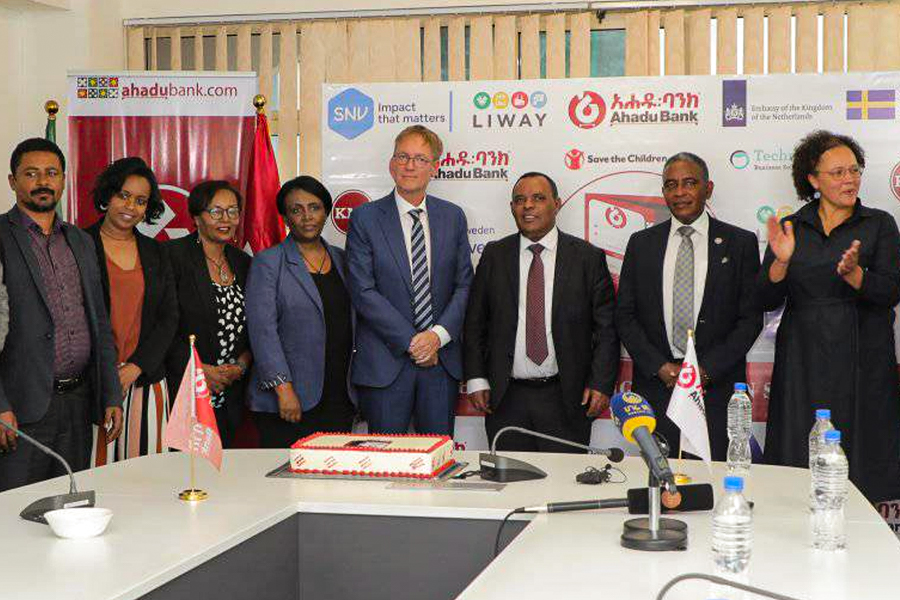
My Opinion | Mar 16,2024
Aug 17 , 2019
By Kartik Akileswaran , Georgina Hutchinson
Kartik Akileswaran is Deputy Lead of the Inclusive Growth and Private Sector Development Practice at the Tony Blair Institute for Global Change (TBI) and was previously Ethiopia Manufacturing and Investment Adviser and Georgina Hutchinson is a senior adviser at TBI. This article first appeared on Project Syndicate.
The Fourth Industrial Revolution is reshaping the world of work. While policymakers in the West are struggling to respond, the task facing African governments appears even more daunting. In navigating the challenges and opportunities of the digital age, the continent’s policymakers must be willing to adapt and experiment.
Most of today’s developed countries, as well as those that transformed their economies in the second half of the 20th century, relied on export-oriented manufacturing to boost productivity and create large numbers of jobs. But robots, the Internet of Things, and 3D printing may change manufacturing so much in the coming years that African countries aspiring to follow the same path will not get the same bang for their buck, especially in terms of job creation.
Yet, these and other technologies will also offer African governments new ways to tackle social challenges and boost economic growth. For example, the use of sensors, big data, and machine learning could greatly increase the continent’s agricultural productivity. Applying artificial intelligence to personalized learning platforms could transform basic education in many African countries, where results remain poor despite increases in enrollment. And blockchain technology could facilitate transactions that require high levels of trust, such as land purchases.
African policymakers must therefore strike a balance between managing the impact of new technologies in order to benefit as much as possible from traditional manufacturing-based development models and embracing the new opportunities that stem from technological advances. Identifying the right mix of policies for each country will be critical, particularly in view of Africa’s economic, political and demographic diversity.
That said, policies that look good on paper may not have the intended effects in practice, as our experience working directly with a number of African governments over many years has shown. After all, attempts to solve complex challenges are inherently uncertain, and policy implementation may be weak.
Given the pace of change in today’s globalized world, and the urgency of the challenge posed by the Fourth Industrial Revolution, African governments need to focus as much on enabling effective policy making as they do on specific policy measures themselves. Adaptive government will be central to achieving this.
Making government more adaptive requires firms, entrepreneurs, subnational administrative bodies, public officials and civil society to develop a shared national vision for inclusive growth. This process should gather the best policy ideas, regardless of their origin, and aim to ensure that key economic actors are pulling in the same direction.
African governments should also encourage experimentation. And where policies are reversible (and many are), officials should be biased toward action. Governments should take a portfolio approach to policy making – similar to what venture capitalists do with their investments – so that successes can balance failures and provide political cover for them. To support such experimentation, governments must develop systems to monitor which policies are working well and which are not, so that successes can be scaled up.
Some African countries have already employed elements of an adaptive approach. Liberia’s government, for example, recently experimented with outsourcing school management to a number of different non-state entities, and commissioned a study to compare their performance both against one another and relative to regular state-run schools. Meanwhile, the Ethiopian government is developing a “portfolio” of industrial parks as the centerpiece of its plan to make the country an African manufacturing hub. Building the parks in different parts of Ethiopia will allow the government to spread the benefits and potential risks around the country.
To become more adaptive, African governments need to take a top-down approach to setting economic objectives and evaluating efforts to achieve them, while also providing the necessary space for experimentation and learning to allow effective policy ideas to emerge from the bottom. This adaptive approach should be underpinned by a technological focus that keeps the challenges and opportunities of the digital revolution front and center.
The outside world can play an important role in supporting African governments’ efforts to adapt. For one thing, any attempt to embrace new technologies requires super-fast, reliable and affordable connectivity - including for those at the bottom of the pyramid. Because African countries cannot shoulder the necessary investment alone, traditional donors and global tech giants alike should explore innovative financing arrangements and experiment with new technologies that can increase access.
More broadly, tech firms and other entrepreneurial organisations can play a key role in bottom-up policy experimentation. At the same time, traditional development institutions should be prepared to offer long-term support to governments that are implementing policies aimed at systemic change.
The Fourth Industrial Revolution does not mean the end of traditional manufacturing-based development models in Africa, but it will require governments and policymakers to become more innovative and experimental. They will have to rely less on detailed planning, and be increasingly prepared to try things, learn and scale up what works. Africa can find a path to the economy of the future if its governments are ready and willing to adapt.
PUBLISHED ON
Aug 17,2019 [ VOL
20 , NO
1007]

My Opinion | Mar 16,2024

Sponsored Contents | Apr 04,2022

Fortune News | Apr 16,2022

Fortune News | Apr 24,2021

Viewpoints | May 31,2025

View From Arada | Mar 06,2021

Radar |

Sponsored Contents | Jan 31,2022

Radar | Oct 12,2024

Covid-19 | Apr 08,2020

My Opinion | 131499 Views | Aug 14,2021

My Opinion | 127855 Views | Aug 21,2021

My Opinion | 125833 Views | Sep 10,2021

My Opinion | 123463 Views | Aug 07,2021

Dec 22 , 2024 . By TIZITA SHEWAFERAW
Charged with transforming colossal state-owned enterprises into modern and competitiv...

Aug 18 , 2024 . By AKSAH ITALO
Although predictable Yonas Zerihun's job in the ride-hailing service is not immune to...

Jul 28 , 2024 . By TIZITA SHEWAFERAW
Unhabitual, perhaps too many, Samuel Gebreyohannes, 38, used to occasionally enjoy a couple of beers at breakfast. However, he recently swit...

Jul 13 , 2024 . By AKSAH ITALO
Investors who rely on tractors, trucks, and field vehicles for commuting, transporting commodities, and f...

Jun 28 , 2025
Meseret Damtie, the assertive auditor general, has never been shy about naming names...

Jun 21 , 2025
A well-worn adage says, “Budget is not destiny, but it is direction.” Examining t...

Jun 14 , 2025
Yet again, the Horn of Africa is bracing for trouble. A region already frayed by wars...

Jun 7 , 2025
Few promises shine brighter in Addis Abeba than the pledge of a roof for every family...

Jun 29 , 2025
Addis Abeba's first rains have coincided with a sweeping rise in private school tuition, prompting the city's education...

Jun 29 , 2025 . By BEZAWIT HULUAGER
Central Bank Governor Mamo Mihretu claimed a bold reconfiguration of monetary policy...

Jun 29 , 2025 . By BEZAWIT HULUAGER
The federal government is betting on a sweeping overhaul of the driver licensing regi...

Jun 29 , 2025 . By NAHOM AYELE
Gadaa Bank has listed 1.2 million shares on the Ethiopian Securities Exchange (ESX),...